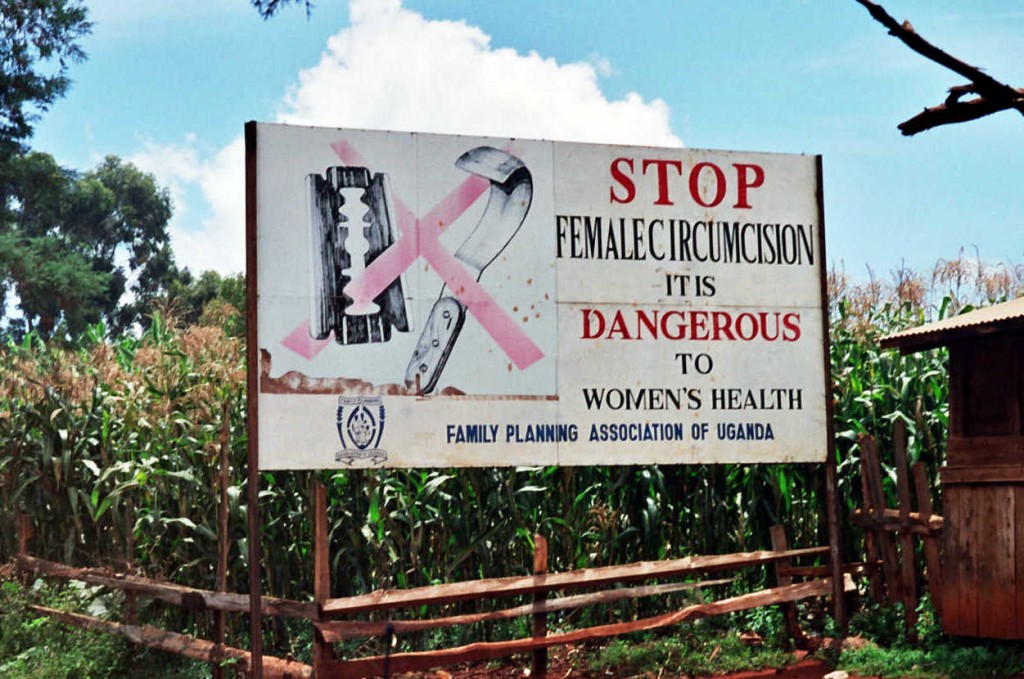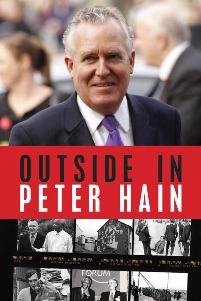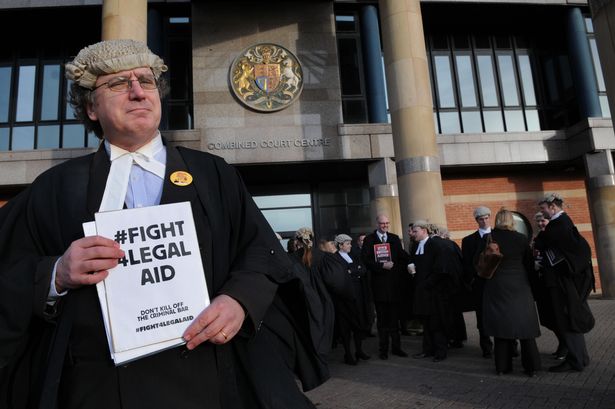– Dr Sylvia de Mars (Newcastle University)
This post was first published on Human Rights in Ireland
Given that my research considers the access rights of EU nationals to the English NHS, last week’s England and Wales High Court decision in R (on the application of A & Anor) v Secretary of State for Health didn’t come as much of a surprise, but remains regrettable. There are two dimensions to this case, which dealt with the question of whether or not Northern Ireland residents can obtain abortions with the English NHS free of charge. The first dimension is a public law one, looking primarily at the organisation and funding of the healthcare services in the United Kingdom, and the second is a human rights one.
In rejecting the claim, the High Court applied public law as it currently stands in England, and though the judgment does not state this explicitly, one would assume that it has done so not least of all because the issue of access to the English NHS has been an increasingly politically sensitive one in recent years. What few restrictions exist in English law to entitlement to access the NHS, the English courts have in this case attempted to uphold, and they have done so by emphasising that healthcare is a devolved matter:
Health Policy within Northern Ireland, being neither a ‘reserved’ nor an ‘excepted’ matter, is a ‘transferred matter’ pursuant to s 4 of the Northern Ireland Act 1998 and is thus within the legislative competence of the Northern Ireland Assembly. It is accordingly, in the context of the service provision in issue in the present proceedings, for the relevant authorities in Northern Ireland to decide to what extent abortion services falling within the law applicable to Northern Ireland should be provided by the health service in Northern Ireland consistent with the duties imposed upon them under the applicable legislation.
Provisions on entitlement to treatment by the NHS in England are set out in the NHS Act 2006. Under the NHS Act 2006, anyone who is “ordinarily resident” in Great Britain is entitled to use the NHS for free: section 1(3) states that “free” service is obligatory for all those entitled to use it, unless otherwise noted. An exception is contained in section 175, which entitles the English authorities to introduce additional legislation to recover charges from “overseas visitors”.
The NHS Act 2006 does not define “ordinary residence”. In order to make the concept workable in practice, Department of Healthguidance on charging overseas visitors directs NHS employees to apply R v Barnet LBC Ex. p Shah when deciding if a visitor is to be charged. In Shah, Lord Scarman ruled that anyone adopting an ‘abode’ voluntarily and for settled purposes “as part of the regular order of his life”, regardless of how long, would pass an “ordinary residence” test unless said person’s stay in the UK was unlawful. This ruling was made in the context of the Education Acts, but — as the Department of Health Guidance states — “is generally recognized to have a wider application.”
Key here is where the NHS Act 2006 demands the residence to be. Unlike the Education Acts, for example, where “ordinary residence” was demanded in the United Kingdom, the NHS Act 2006 demands “ordinary residence” in Great Britain. It thus explicitly excludes Northern Ireland. The general reasoning behind an “ordinary residence” requirement in order to access social services is that visitors to the UK should not be entitled to access what are “free at the point of use” services at the expense of the UK taxpayer. However, as noted, the exception is — in most areas of law — to those not resident in the United Kingdom. This was raised by one of the claimant’s mothers in A & Anor, who said:
Having now had the opportunity of taking legal advice in England, I understand that publicly funded health care services are intended to be free at the point of use for all UK residents. I feel my daughter has been treated most unfairly, because when she was required treatment in another part of the United Kingdom, she did not get it, and was offered no assistance by the state health care system. If my daughter had had some other health condition, which necessitated her travelling to another part of the UK for treatment I believe that no obstacles would been put in her way and that every effort would have been made to ensure that she was treated in an appropriate NHS facility and had assistance with travel costs. [emphasis added]
As King J points out, this is a misunderstanding of the relevant legislation. King J, however, does not stress that Northern Ireland is singled out as an exception in primary legislation already; instead, he focuses on the fact that abortion is a “secondary care service”, and these are only provided for local residents, by what used to be Primary Care Trusts (PCTs) and what are now Clinical Commissioning Groups (CCGs). In short, prior to 2013, funding — as directed from the UK Parliament to the Department of Health, and then distributed to PCTs — for secondary care services such as abortion services was again proportionate to “local” populations in areas, and the English NHS (through local PCTs) was entitled to charge for these services unless they are provided in an emergency (as emergency treatment, regardless of where in England it takes place, is always free) or unless the service is provided for what is termed a “qualifying patient”, as in a patient with serious mental illness as per s130C of the Mental Health Act 1983. Consequently, the law directed the English NHS to charge anyone who is not locally resident for secondary care services, including abortion access, unless a specific exception applied to them.
The law applicable to CCGs is slightly different, as is summarized well in the judgment:
[T]he CCGs are in a slightly different position than were PCTs vis a vis the provision of services to persons ordinarily resident in Northern Ireland. Some services must be provided based on the presence in the CCGs’ area; no such duty applies to other services vis a vis persons ordinarily resident in Northern Ireland (and Scotland and Wales). But there is discretion to commission services, including abortion services, for the benefit of all potential patients, including patients ordinarily resident in Northern Ireland. In this way, decision-making as to the appropriate provision of certain services has been devolved from the Secretary of State to the level of CCG.
As King J ultimately finds in A & Anon, the current position of the NHS Act 2006 is that CCGs can provide abortion services (for free) to Northern Ireland residents if it wishes to, but there remains no obligation to provide these services free of charge. Rather than accept that, as abortion is (outside very restricted circumstances) illegal in Northern Ireland, the English NHS has a duty to provide abortion services to those “ordinarily resident” in other parts of the United Kingdom, his ruling focuses very explicitly on the fact that the Health Secretary’s general duty is to the people of England, and that the English NHS cannot be held responsible for the fact that the devolved authorities in Northern Ireland impose much more severe restrictions upon the availability of legal abortions in Northern Ireland.
From a functional perspective, there is little to fault in this conclusion. Health care is not only a devolved matter, but it has now even withinEngland, become a “local” matter. Financially, the centralized mechanism whereby health services across the United Kingdom are funded is only sustainable if block grants reach CCGs (or the prior PCTs) on the basis of how many residents are likely to need services. This stands separate from the Northern Ireland position on abortion, and consequently the predictable stream women, resident in Northern Ireland, seeking abortions in England; as a matter of public law, the local English NHS simply holds no responsibility to provide any secondary care that is “free at the point of use” for anyone not ordinarily resident in their particular catchment area, unless very specific exceptions apply.
Acceptable as this functional, “respectful of devolution” reasoning is likely to be to those concerned about the English NHS’s budgetary crisis, however, it ultimately hides behind devolution to ignore the fact that a substantial number of women who have UK citizenship cannot benefit from human rights law applicable within the United Kingdom as a whole. As the Abortion Act 1967 does not apply to Northern Ireland, the claimant attempted to argue that denial of free access to the NHS to obtain this abortion violated Article 14 (on non-discrimination) of the European Convention of Human Rights, by way of interference with her Article 8 (right to private life) right:
The claimant would say that she is treated differently from all other citizens of the United Kingdom as regards access to ‘state funded abortions’ because unlike citizens ordinarily resident in England, Scotland or Wales, she has no option of returning to her place of ‘usual residence’ in order to access a state funded abortion…
King J was very quick to dismiss this argument, and he does so in very formalistic terms. He ruled that there was no such thing as a right to a “state funded abortion”; rather, that Article 8 and 14 read together require residents of Northern Ireland to be able to access abortions in England as any other UK citizen is. This duty, he concluded, the Secretary of State fulfilled, as the claimant did manage to obtain an abortion in England, and her right to do so was not legally impeded. What services the NHS provides for free is, in short, not affected by the ECHR; this is a matter of contracting state policy, and not specific to abortion as such. While technically not untrue, this position does skirt the reality that all healthcare services in all parts of the UK are provided “for free” for those eligible to use them, meaning that the right to obtain such a service privately is at best a half-right — it is not one that anyone outside of Northern Ireland would ever need to make use of, but this is ignored by the High Court. Similarly ignored is that not all Northern Ireland residents would be able to afford a private abortion,which flies in the face of the philosophy underpinning the National Health Service: the NHS is there to provide treatment on the basis of need, regardless of ability to pay for it.
Additionally, and obiter, King J suggests that there is no “discrimination” in this case at all, in the sense that the residence requirement for secondary care services stems from the objective reasonable justification of the “division of responsibility for health services within the four jurisdictions of the United Kingdom.” In other words: this was not a personal ruling, it was a pragmatic one given that healthcare is a devolved matter, and the only way around it would be for the claimant to contest the Northern Ireland’s law on abortion under the ECHR … but this was not what the claimant did.
One way to view the final point is as a nudge for the claimant to challenge the Northern Ireland law on exactly those grounds; it reads almost as an expression of regret, whereby King J indicates he cannot simply ignore the public law in order to rule on the human rights issues. However, that will be of little consolation for those interested in seeing women’s rights protected in the United Kingdom as a matter ofnational law, rather than international law — and indeed, the latter appears to be what the High Court is very unwilling to do. Given that the post-2013 restructuring of the NHS has granted CCGs the power to grant access to free abortions as a matter of discretion, the door to actually use human rights to support the ability of women from Northern Ireland to obtain abortions in the United Kingdom where this is legally permissible as a state-funded service appears to have been wide open in this case; but, while highlighted, this was not taken advantage of, nor was the Secretary of State instructed to take this step by simply legislating so that CCGs made services not available in onepart of the United Kingdom available to all those resident in that part in other parts of the United Kingdom. Ultimately, the four parts here do not make a whole, and from a human rights perspective, this is at best regrettable.
As it stands, the grounds for further action are clearly there — but so far, the High Court remains unwilling to rule in a way that clearly informs the Northern Ireland Assembly that its attitude towards abortion is unsustainable in a United Kingdom that respects the human rights of its female citizens.




